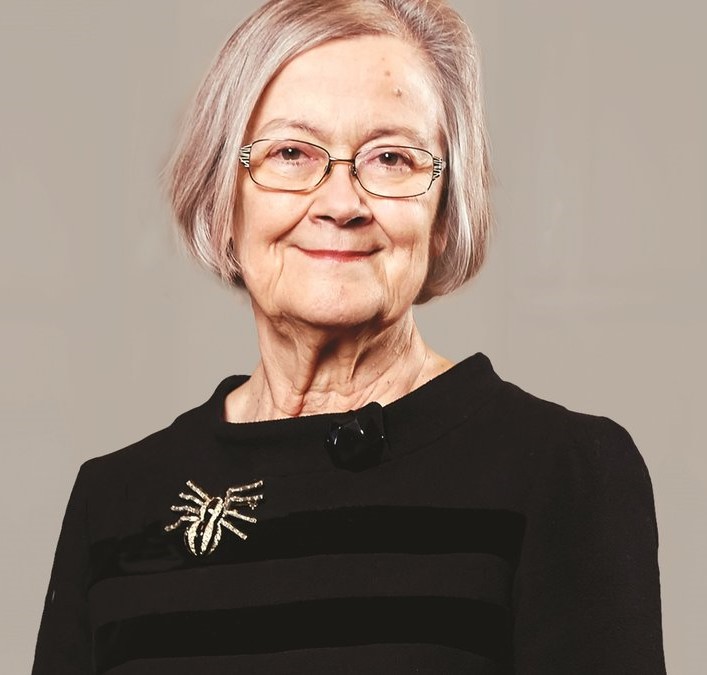The web of imposter moments

As I sit at my desk overlooking the River Ouse, I never expected to write that I have four things in common with Lady Hale (Brenda Hale, former President of the Supreme Court). We both live in Yorkshire, we both like brooches, we have both made our careers in law. Admittedly Lady Hale’s is much more high flying than mine will ever be! And finally, we both have occasions where we suffer with imposter moments.

In her book, Spider Woman, Lady Hale starts by identifying four of her imposter moments. Firstly, her first day at High School, wondering if she could cope with it. Secondly her first day at Cambridge University, Girton College to be precise, again thinking whether she could cope. Thirdly when working at the Law Commission where she was the first woman and youngest commissioner to be appointed. Finally, and perhaps most publicly when she was a senior judge in the Supreme Court (1).
So, what are imposter moments? They are often referred to as imposter syndrome or imposterism. Feenstar et al (2020 p1) define it as “the notion that some individuals feel as if they ended up in esteemed roles and positions not because of their competencies, but because of some oversight or stroke of luck (2).” While the University of Warwick student support page defines it as a “psychological phenomenon in which people doubt their accomplishments, having instead persistent feelings of intellectual inadequacy and fear of being exposed as a fraud, despite evident success or external proof and competency” (3). Regardless of the definition, the key features are the doubting of abilities and questioning the right to be in their current position. Basically the individual feels a fraud and is waiting for others to realise this. For some people this feeling can impact on every part of their life, while for others it will be particular events that trigger this, for example being promoted to a new job role or attending university. This feeling of self-doubt can often result in the individual not fully participating in relevant activities because they have a fear of failure and being exposed as a fraud (4).
The imposter moments can manifest themselves in a variety of different ways for different people, but central to a moment is a feeling of worthlessness, that you don’t belong and that no one listens to you or acknowledges your accomplishments. For some people this can be brought about from a previous bad experience, for example, I did not do well in that essay so I won’t do well in any other written assessment, or they did not listen to me at the last tutorial so why should I contribute at this one?
As a tutor and Student Experience Manager at the Open University (OU) working with students from a variety of backgrounds, I am fully aware that many students do not feel they belong to the university and that they should not be studying. The OU’s mission is to be open to people, places, methods and ideas and this means that for many, but not all students, this will be a second chance at education, having had poor experiences elsewhere. Some students have shared with me experiences of being told “they would not make it in university” or “people like us don’t go to uni” and this can influence their feelings of worth. The imposter moment can impact on their studies in a number of ways. For example, they may not feel comfortable attending tutorials or if they attend, they will observe rather than take part (at the OU this is fine) Good marks will be obtained for a TMA but the students will talk about luck or the poor judgement of the marker resulting in a high mark being obtained. They will lack confidence to engage with their tutors and avoid taking advantage of the one-to-one meetings offered by tutors.
If you are a student does this sound like you?
.png)
If the answer is yes, stop for a minute and ask yourself:
.png)
We all make mistakes from time to time and the key thing is to learn from these and not dwell on them. Remember past performance does not dictate future performance.
Lady Hale talks about her imposter moments, but she is not alone, many, many people experience this. Those of us who know we experience it, often hide it well but are left with the demon of doubt in our minds. There are many people in the web of the imposter moment at any one time. Lady Hale sets out in her book to show that imposters can learn to cope and be very successful. This message, I feel is an excellent way to end the blog.
References
- Hale B, (2022), Spider Women, UK, Penguin Random House,
- Feenstra, S, Begeny C,T, Ryan M, K, Rink F, A , Stoker J, I and Jordan J, (2020) Contextualising the imposter “Syndrome”, Frontiers in Psychology Vol11 doi: 10.3389/fpsyg.2020.575024
- University of Warwick Wellbeing and Student Support pages, (2022) available at https://warwick.ac.uk/services/wss/topics/impostersyndrome//, accessed 5th April 2024
- Paulise L 2023, available at 75% Of Women Executives Experience Imposter Syndrome In The Workplace (forbes.com) Accessed 5th April 2024
Image Source
Lady Hale - lady hale spider - Search Images (bing.com)

Carol Edwards
Carol is a Senior Lecturer within the Law School. She joined the OU as an Associate Lecturer in 2015 and became a Student Experience Manager in 2018 before taking up the role of Assistant Head of Student Experience – Retention and Outcomes in 2023. She is a Senior Fellow of the HEA. Carol is also actively involved in the scholarship relating to online teaching pedagogy and has presented and published on this area. She has a very keen interest in tackling student and staff isolation and is actively involved in a number of projects attempting to address this area. These include the online mentoring programme, The Law School Belonging Project and Tutor CPD as a means of creating community.